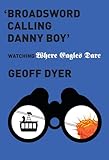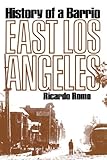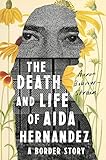I look upon this list, and I despair. For one, some time in 2018, I started logging in my paper day planner the books I had completed reading. The reason being I couldn’t remember a number of books I had read (which is especially distressing the closer you get to 50) and wanted some record of having done so, if only to have proof that a certain title was indeed utterly forgettable. But putting together this list, I discovered I had forgotten to log a few titles that I clearly remember reading. So much for primary source documents, I suppose.
For another, I am not reading enough. Or I mean to say, the
closer you get to 50, the more apparent it is that the window of time you have
to get to the books you need (and, ideally, want)
to is narrowing like a sclerotic aorta. But I’m making a good effort, I think.










 Transit by Rachel Cusk: Might her trilogy be an agreed-upon masterpiece? I would say so.
Transit by Rachel Cusk: Might her trilogy be an agreed-upon masterpiece? I would say so.
None So Blind by J.A. Gonzalez Sainz, translated by Harold Augenbraum and Cecilia Ross
Foursome: Alfred Stieglitz, Georgia O’Keeffe, Paul Strand, Rebecca Salsbury by Carolyn Burke
In Dubious Battle by John Steinbeck: I first read this one as a poli-sci undergrad during the Nirvana decade but reread it this year. It was much better than I remembered it to be, not least because of its grim understanding of what it means to combat capitalism.
“Broadsword Calling Danny Boy”: Watching “Where Eagles Dare” by Geoff Dyer: Sheer comic delight, this one.
Lost Time: Lectures on Proust in a Soviet Prison Camp by Josef Czapski, translated by Eric Karpeles: Did I mention I was a poli-sci undergrad? My emphasis had been Eastern Europe and the Soviet Union, but then the Berlin Wall came down, and I would at some point have to learn German and Russian, so, yeah. But I do like to keep up.
Working: Researching, Interviewing, Writing by Robert Caro: Please, please, please, please let the final volume of the LBJ bio make it to completion under Caro’s pen.
East Los Angeles: History of a Barrio by Ricardo Romo: If anybody thinks there hasn’t been THAT much structural racism toward Mexican and Mexican-American people in the country, read this.
The Others by Matthew Rohrer
Negrophobia by Darius James: Man oh man.
America Was Hard to Find by Kathleen Alcott
Sleep of Memory by Patrick Modiano, translated by Mark Polizzotti
Aug 9 – Fog by Kathryn Scanlan
Your House Will Pay by Steph Cha
The Scandal of the Century and Other Writings by Gabriel Garcia Marquez, translated by Anne McLean: Further evidence that newspapers aren’t maximizing the full literary potential of their medium.
Maggie Brown and Others by Peter Orner
Human Matter by Rodrigo Rey Rosa, translated by Eduardo Aparicio, and Chaos, A Fable by Rodrigo Rey Rosa, translated by Jeffrey Gray: Along with Horacio Castellanos Moya, Rey Rosa has a dread-soaked vision of the world that’s all too tangible and utterly compelling. As with Castellanos Moya, I greet new books by Rey Rosa with glee, which is a funny way of entering a novel you know will rattle you.
Father’s Day by Matthew Zapruder
Bottle Grove by Daniel Handler
Incognegro: A Graphic Mystery by Mat Johnson and Warren Pleece: My middle-school son bought a copy of this at the Orcas Island Lit Fest, and I read it after he was done. The graphic novel had him emphatically sharing me with a ton of his thoughts on the book, then asking me questions about lynching, race, and U.S. history, questions that boiled down to, “But why?” But why indeed.
The Death and Life of Aida Hernandez: A Border Story by Aaron Bobrow-Strain: It was distressing to read this exemplary book, which partly examines the Mexican-American experience in contemporary Douglas, Arizona, in the same year I read Romo’s study, which was published way back in 1983. The takeaway being that over several generations, not much has improved for Mexican Americans in terms of economics and education. In fact, as the El Paso massacre and the brutality of ICE would attest, it is arguably worse.
More from A Year in Reading 2019
Do you love Year in Reading and the amazing books and arts content that The Millions produces year round? We are asking readers for support to ensure that The Millions can stay vibrant for years to come. Please click here to learn about several simple ways you can support The Millions now.
Don’t miss: A Year in Reading 2018, 2017, 2016, 2015, 2014, 2013, 2012, 2011, 2010, 2009, 2008, 2007, 2006, 2005
The post A Year in Reading: Oscar Villalon appeared first on The Millions.
Source : A Year in Reading: Oscar Villalon









